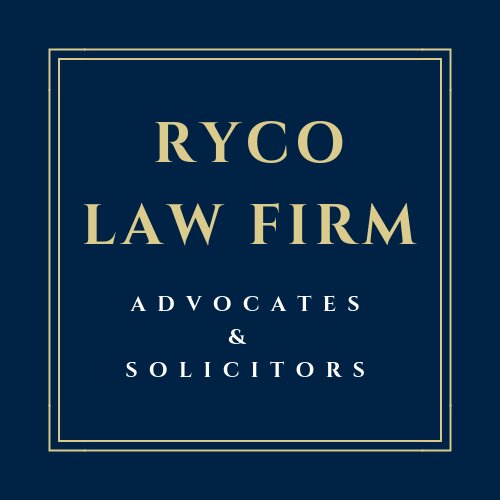Best Debt & Collection Lawyers in Kota Kinabalu
Share your needs with us, get contacted by law firms.
Free. Takes 2 min.
List of the best lawyers in Kota Kinabalu, Malaysia
Malaysia Debt & Collection Legal Questions answered by Lawyers
Browse our 1 legal question about Debt & Collection in Malaysia and read the lawyer answers, or ask your own questions for free.
- We supplying goods from Malaysia to philippines buyer . The debts more than 3 years not paying to us . Can we take up legal action ? and What your legals fees on this matter ?
- The company wishes to collect back the amount owed by the buyer in the Philippines by legal action and the promise by the buyer never materializes more than 2 years.
-
Lawyer answer by JC Legal
Hi, thank you for your enquiry. Is there any contract or agreement signed between you and the buyer, and is it governed by the laws of Malaysia or the Philippines? Thank you. Best regards, JC Legal
Read full answer
About Debt & Collection Law in Kota Kinabalu, Malaysia
Debt & Collection law in Kota Kinabalu, Malaysia, encompasses the regulations and legal protocols related to the borrowing, repayment, and recovery of debts. This includes the rights of creditors to recover unpaid debts and the protection of debtor rights to ensure fair treatment and prevent abusive practices. The legal framework is designed to balance the interests of both parties, ensuring that creditors can collect debts while debtors are safeguarded from harassment and unlawful practices.
Why You May Need a Lawyer
Engaging a lawyer specializing in Debt & Collection can be crucial for several reasons. If you are a creditor facing difficulties in recovering debts, a legal expert can help you navigate the recovery process legally and efficiently. If you are a debtor receiving collection notices, a lawyer can help you understand your rights and evaluate whether the collection attempts are lawful. Legal advice can also be indispensable in negotiating settlements, restructuring debts, or representing you in court if necessary.
Local Laws Overview
The legal landscape governing Debt & Collection in Kota Kinabalu is primarily governed by several Malaysian federal laws, including the Contracts Act 1950, Hire Purchase Act 1967, and Moneylenders Act 1951. These laws regulate lending practices, the rights and obligations of creditors and debtors, and the conduct of debt collection agencies. Additionally, the Insolvency Act 1967 provides guidance on bankruptcy proceedings, offering another legal avenue for resolving debts. In Sabah, where Kota Kinabalu is located, additional regulations by local authorities may apply, necessitating careful navigation of both federal and state-level legal requirements.
Frequently Asked Questions
What is the usual process for debt collection in Kota Kinabalu?
The process typically starts with a demand letter, followed by negotiation or mediation. Failing resolution, creditors may proceed with a lawsuit to obtain a court judgment. Enforcement actions can follow a favorable judgment.
Can I be harassed for debt repayment?
No, creditors and collection agencies must adhere to ethical standards and are prohibited from harassing debtors. If harassment occurs, legal recourse is available through complaints to regulatory bodies or legal action.
What are my options if I am unable to pay my debts?
Consider debt restructuring, negotiation for an extended repayment plan, or a legal declaration of bankruptcy as last resorts. It's advisable to consult a lawyer to analyze your situation.
How long does a creditor have to recover a debt?
Under Malaysian law, the limitation period for filing a suit for debt recovery is generally six years from the date the debt becomes due, which may vary depending on contract specifics.
Are there specific laws for handling student loan debts?
Student loans in Malaysia are primarily managed by the National Higher Education Fund Corporation (PTPTN). The repayment policies and enforcement measures are subject to specific regulations outlined by PTPTN.
What should I do if I receive a court summons for a debt-related issue?
Immediate consultation with a lawyer is recommended to understand your options, prepare a defense, or negotiate a settlement plan if possible.
How can a lawyer assist in debt settlement negotiations?
Lawyers can provide expert advice on settlement terms, ensuring that agreements are reasonable, legally binding, and in your best interest, protecting you from unfavorable terms.
What is a 'Letter of Demand'?
A 'Letter of Demand' is a formal notice from a creditor or their legal representative stating the debt owed and requiring payment within a specified period before legal proceedings are initiated.
Can debt collection practices affect my credit score?
Yes, failure to repay debts can negatively impact your credit score. It's essential to address debts proactively to manage your creditworthiness.
What role does the Malaysian Insolvency Department play in debt collection?
The Malaysian Insolvency Department handles bankruptcy cases, providing a structured approach to debt relief and recovery in cases where individuals or entities cannot settle debts.
Additional Resources
For further assistance and information about Debt & Collection, consider reaching out to local legal aid centers in Sabah, the Malaysian Bar Council, or the Kota Kinabalu Consumer Association. Governmental bodies such as the Ministry of Domestic Trade and Consumer Affairs may also provide guidance and support. Additionally, consulting with local debt counseling services can be beneficial.
Next Steps
If you need legal assistance in Debt & Collection, begin by seeking a consultation with a qualified lawyer. Prepare all relevant documentation related to your case, such as contracts, communication with creditors, and financial statements. This will ensure that your legal advisor can provide tailored and effective guidance. Legal directories and word-of-mouth recommendations can help you find a reputable lawyer in Kota Kinabalu.
Lawzana helps you find the best lawyers and law firms in Kota Kinabalu through a curated and pre-screened list of qualified legal professionals. Our platform offers rankings and detailed profiles of attorneys and law firms, allowing you to compare based on practice areas, including Debt & Collection, experience, and client feedback.
Each profile includes a description of the firm's areas of practice, client reviews, team members and partners, year of establishment, spoken languages, office locations, contact information, social media presence, and any published articles or resources. Most firms on our platform speak English and are experienced in both local and international legal matters.
Get a quote from top-rated law firms in Kota Kinabalu, Malaysia — quickly, securely, and without unnecessary hassle.
Disclaimer:
The information provided on this page is for general informational purposes only and does not constitute legal advice. While we strive to ensure the accuracy and relevance of the content, legal information may change over time, and interpretations of the law can vary. You should always consult with a qualified legal professional for advice specific to your situation.
We disclaim all liability for actions taken or not taken based on the content of this page. If you believe any information is incorrect or outdated, please contact us, and we will review and update it where appropriate.









